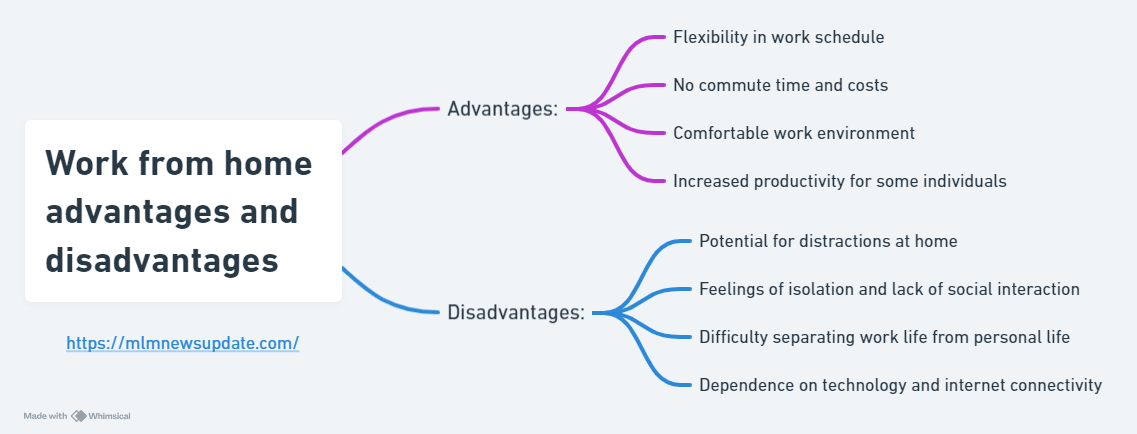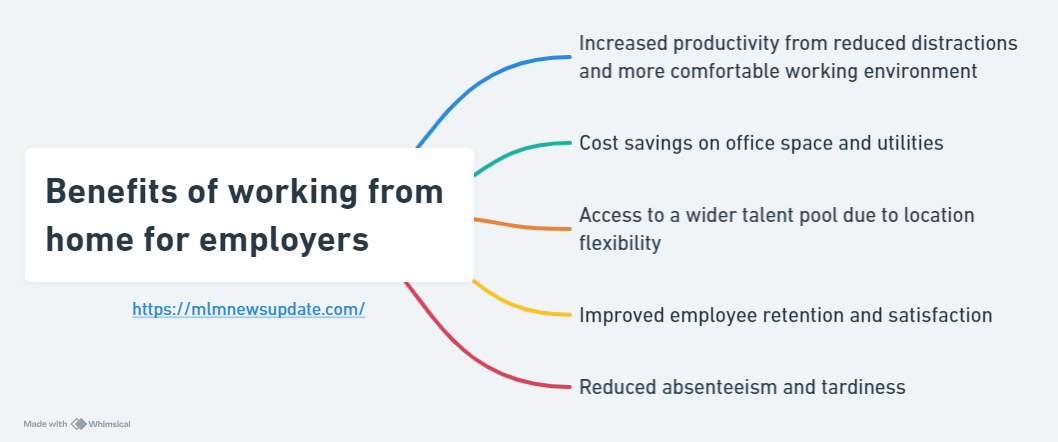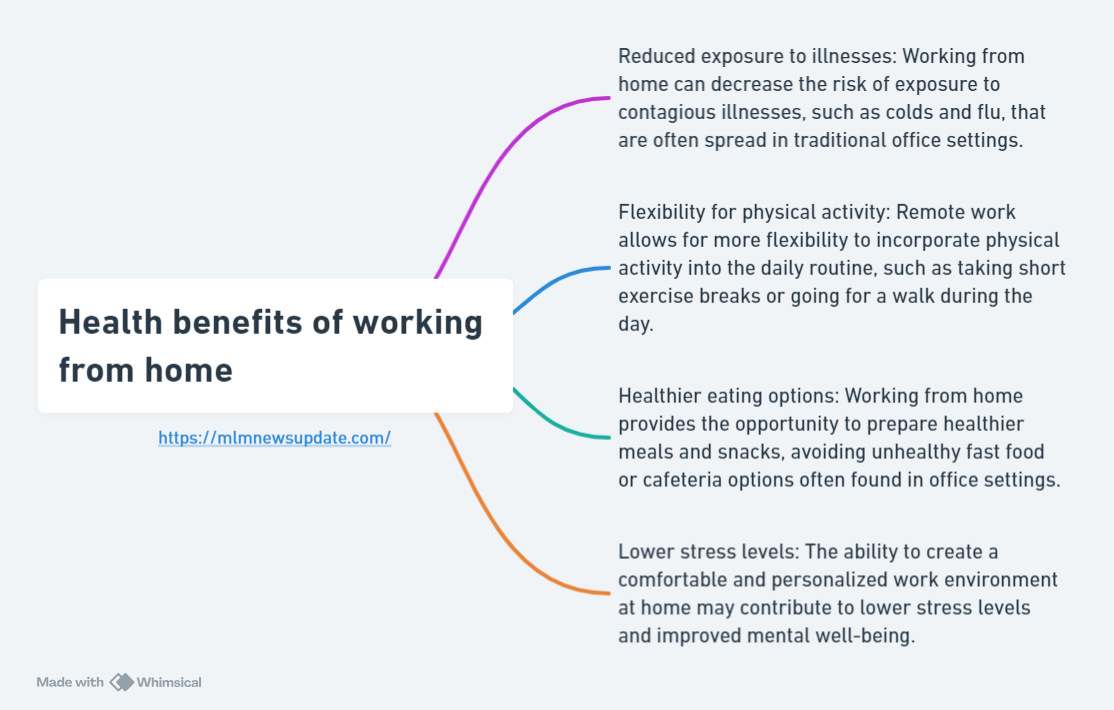As the workplace evolves, the benefits of working from home are drawing more attention from both employers and employees.
This shift not only promises significant flexibility but also enhances productivity and work-life balance.
From financial savings on commuting to improved mental health and reduced environmental impact, the advantages of remote work are multifaceted.
In this article, we explore how transitioning to a home office can lead to a more satisfying professional life and why this modern approach might be the future of work.
Whether you’re considering remote work or refining your home office setup, understanding these benefits is essential.
Best 9 work from home for women
8 Benefits of working from home for employers:
Infographic for Benefits of working from home for employers
1. Reduced Overhead Costs
Significant savings on office-related expenses such as rent, utilities, and maintenance can directly improve the bottom line.
2. Increased Productivity
Remote workers often report higher productivity levels due to fewer office distractions and the ability to work during their peak hours.
3. Lower Absenteeism and Turnover
Flexible working conditions lead to fewer sick days and reduced turnover, decreasing the costs and disruptions of hiring and training.
4. Wider Talent Pool
Employers can hire from a broader geographic area, accessing specialized skills and filling positions more effectively.
5. Improved Employee Retention
The flexibility of remote work improves job satisfaction and loyalty, enhancing employee retention rates.
6. Environmental Responsibility
Remote work contributes to less traffic and pollution, aligning with corporate sustainability goals and improving public image.
7. Enhanced Disaster Preparedness
A remote-ready workforce ensures continuity during emergencies, minimizing operational disruptions.
8. Diverse and Inclusive Workforce
Remote policies facilitate a more inclusive environment, attracting a diverse range of talents and fostering innovation.
5 best work from home jobs in india
Health benefits of working from home:
Infographic for Health benefits of working from home
1. Reduced Stress Levels
Eliminating daily commutes reduces stress, allowing for a calmer start to the day.
2. Improved Mental Health
Greater control over work environments and schedules boosts work-life balance, reducing burnout and enhancing life satisfaction.
3. Better Physical Health
Remote work facilitates regular exercise and healthier eating habits, as employees can cook at home and schedule workouts more freely.
4. Ergonomic Flexibility
Employees can customize their workspace for optimal ergonomics, potentially decreasing the risk of repetitive strain injuries.
5. Increased Time for Health Appointments
With more flexible schedules, employees can easily attend health appointments, promoting preventive healthcare practices.
6. Potential for Better Sleep
Flexible working hours can align with natural sleep patterns, improving sleep quality and overall health.
7. Reduced Exposure to Illness
Working from home minimizes contact with communicable diseases, keeping employees healthier during flu seasons or pandemics.
Work from home advantages and disadvantages:
Infographic for benefits of working from home advantages and disadvantages

Advantages of Working from Home:
- Flexibility:
Offers the ability to set flexible work hours and create a personalized work environment.
- Reduced Commute:
Eliminates commuting stress and time, contributing to overall well-being and productivity.
- Increased Productivity:
Fewer office distractions can lead to higher efficiency and output.
- Better Work-Life Balance:
Facilitates a healthier balance between professional and personal activities.
- Customizable Workspace:
Allows for an ergonomic setup tailored to individual needs.
Disadvantages of Working from Home:
- Isolation:
Can lead to feelings of loneliness and disconnection from colleagues and company culture.
- Work-Life Blur:
The boundaries between professional and personal life may become unclear, risking overwork.
- Connectivity and Setup Issues:
Requires reliable internet and a suitable home office, which can be challenging for some.
- Reduced Teamwork:
Potential impacts on collaboration and communication, affecting team dynamics and project outcomes.
Challenges of working from home:
1. Maintaining Productivity
Home distractions can lead to reduced focus and efficiency, especially without the structure of an office environment.
2. Communication Barriers
Lack of face-to-face interaction can cause misunderstandings and delays in communication, hindering quick decision-making.
3. Technology Issues
Reliance on technology means that hardware failures, software glitches, or unstable internet connections can disrupt work.
4. Isolation and Loneliness
The absence of regular social interactions can lead to feelings of isolation, negatively impacting mental health and productivity.
5. Blurring of Work-Life Boundaries
Without a clear separation between work and personal spaces, employees might find it difficult to disconnect, potentially leading to burnout.
6. Professional Development
Remote workers may miss out on informal learning opportunities and visibility, which can affect career growth.
7. Home Office Set-Up
Inadequate home office setups can cause physical discomfort and health issues, affecting work quality and well-being.
8. Managing a Remote Team
Leadership challenges arise in maintaining performance, morale, and team cohesion without physical presence.
find work from home jobs: top 20 companies
Conclusion for benefits of working from home:
In conclusion, the benefits of working from home are transformative, offering flexibility, reduced costs, and improved work-life balance.
However, these advantages come with challenges that require careful management.
By addressing these effectively, both employers and employees can fully leverage the potential of remote work,
making it a rewarding and productive experience for all involved.





